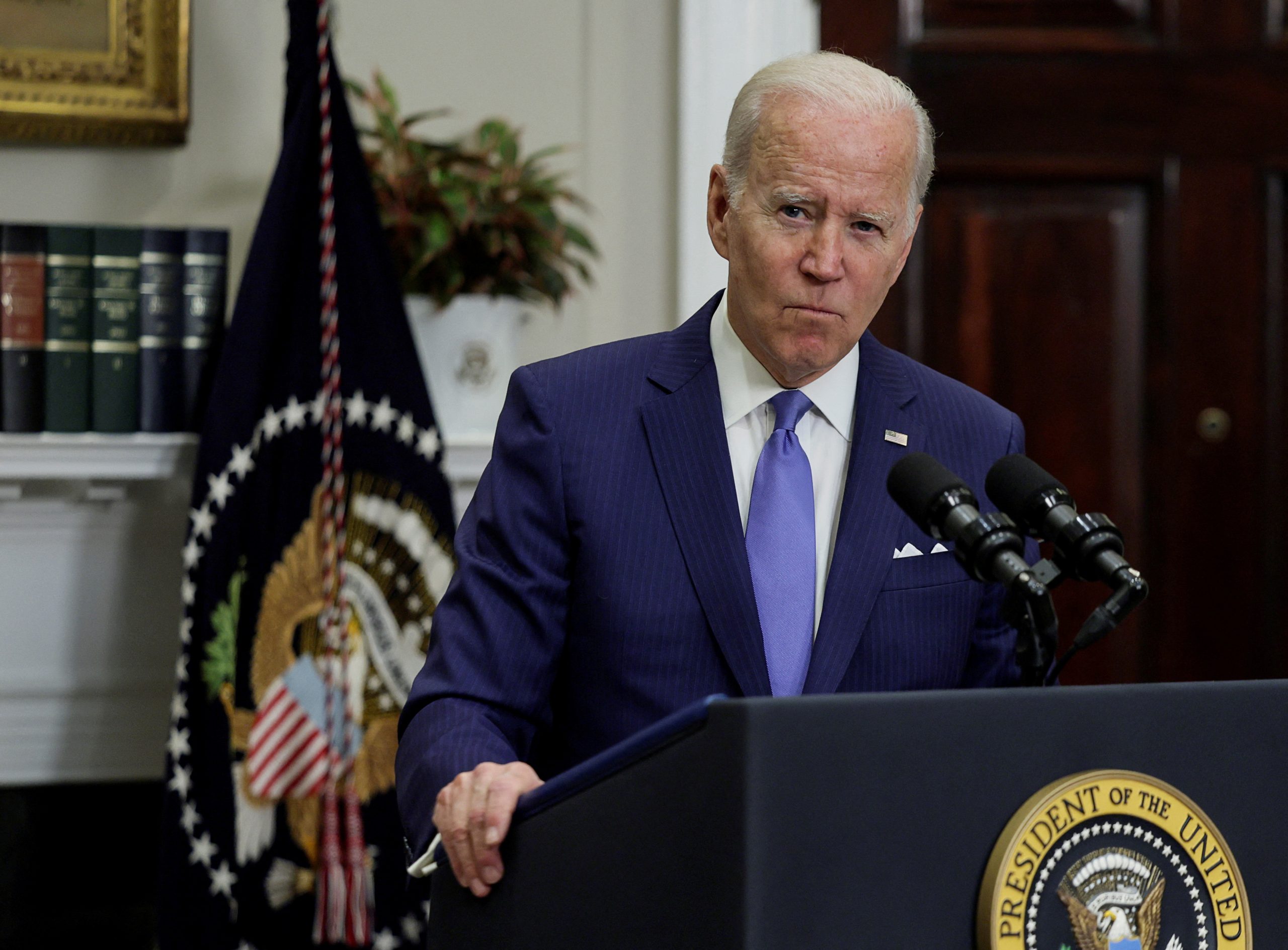
Willie R. Tubbs, FISM News
[elfsight_social_share_buttons id=”1″]
In what is fast becoming an annual tradition in the United States, Democrats and Republicans are again on the precipice of a government shutdown, this time as GOP leadership bristles at another multi-billion-dollar spending proposal from the Biden administration.
Over the Labor Day weekend, President Joe Biden requested $47.1 billion to be earmarked for Ukraine as well as the nation’s response to natural disasters, COVID-19, and monkeypox.
Republicans, though, have given numerous indications that they have little interest in helping Biden carry out his spending goals, which is setting up a likely showdown that could lead to a federal shutdown on Oct. 1. Were the two parties to fail to reach an agreement on a stopgap bill, the federal government would grind to a halt on that date.
Early indicators should likely leave Democrats nervous. Republicans have been quick to point out that another round of mass spending will inevitably lead to more inflation.
“Washington Democrats have spent nearly two years borrowing, printing, and spending our economy into turmoil,” Senate Minority Leader Mitch McConnell (R-Ky.) said in a speech on the Senate floor Wednesday.
It’s not getting any easier to put food on the table, pay rent, or keep the lights on. But here we are again, starting another Senate work period, with not one word from the Democratic leader about plans to bring bills to the floor to cut inflation, fight the crime wave, or secure the border. The American people have communicated loud and clear what their priorities are. And Democrats keep communicating loud and clear they simply do not care.
Senate Majority Leader Chuck Schumer (D-N.Y.) has accused Republicans of being “disgraceful” in “playing politics” with the spending bill, but shame tactics are not likely to resonate with any Republican senators. At least in their rhetoric, the GOP senators indicate they’ve reached their limit.
Sen. Tommy Tuberville (R.-Ala.) pointed to what the Democrats’ spending will mean for future generations.
Dems’ reckless spending bill will add $25B to our national deficit through 2026. Americans are already paying more for groceries, gas, & electricity. Now future generations must shoulder the burden of increased costs to pay for Dems’ progressive policies. https://t.co/fAGfp3LwUw
— Coach Tommy Tuberville (@SenTuberville) September 8, 2022
The GOP remains open to funding Ukraine’s war with Russia, but Republicans are demanding more details on where and how this money — Biden has requested another $11.7 billion for the European war effort — is being spent.
“It’s a big ask without much explanation,” Sen. Roy Blunt (R-Mo.) told the Associated Press.
While a way forward on Ukraine funds is likely, the sledding will be substantially tougher for Democrats in the area of COVID-19 and monkeypox allocations. Biden wants $22.4 billion in new COVID spending and another $4.5 billion in monkeypox spending.
Blunt, in the same AP article, wondered aloud why Americans shouldn’t have to pay for their own COVID-19 vaccinations and care.
In her Thursday briefing, White House Press Secretary Karine Jean-Pierre said the funding was necessary for research and for granting access to all Americans.
“[The] president will continue to call on Congress to take … action on the administration’s request for additional COVID-19 funding so we can make important investments to support testing, long-COVID research, and the development of next-generation vaccines and research,” Jean-Pierre said.
Biden also rolled out his plan to encourage Americans to get COVID booster shots this fall.
“The administration’s plan to manage COVID-19 this fall focuses on making sure that Americans continue to have easy and equitable access to lifesaving tools, particularly the updated COVID-19 vaccines, and encouraging Americans to use them,” a release from the White House reads. “Its success relies on all Americans — state and local leaders, health care providers, employers, educators, community and faith-based organizations, and individuals — doing their part and taking commonsense actions to protect themselves, their loved ones, and their communities.”
Monkeypox funding will likely be the area of most concern for the right, where numerous officials, including Florida Governor Ron DeSantis, have accused the Biden administration of fear-mongering over a disease that has not proven to be particularly contagious or deadly.
“I am so sick of politicians, and we saw this with COVID, trying to sow fear into the population,” the Republican governor said in early August. “We had people calling, mothers worried about whether their kids could catch [monkeypox] at school … We are not doing fear. And we are not going to go out and try to rile people up and try to act like people can’t live their lives as they’ve been normally doing because of something.”
DeSantis, a potential 2024 presidential candidate, might have a passion for the subject, but he currently lacks the ability to limit federal spending. He does, however, speak to a growing desire among conservatives to get the U.S. government out of the contagious disease business.
According to a report in Politico, Senate Minority Whip John Thune (R-S.D.) said there was “zero interest in Covid or monkeypox” funding among Senate Republicans and said he expected “this process will get really messy the more things they try to drop in.”
Messy is the medium in which the Biden administration has operated when it comes to spending. Biden’s student debt forgiveness plan is still a matter of intense debate, and will no doubt inform Republican resistance to any new spending.
